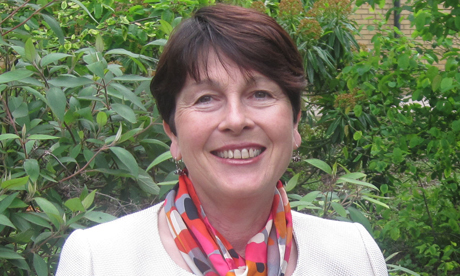Silicon students start up at Hackney University Technical College

Annie Blackmore, Principal of Hackney University Technical College
The startups of Shoreditch will inspire young teenagers who will this month be making up the first intake at a pioneering school specialising in digital technologies and health.
Hackney University Technical College (Hackney UTC) is a SIM card’s throw from the so-called Silicon Roundabout and boasts British Telecom, the Homerton University Hospital Trust and the University of East London as founding partners.
Its principal, Annie Blackmore, says the exciting institution will offer pupils the chance to acquire priceless vocational training alongside a broad-based education.
The school accepts pupils aged 14, and those who stay on all the way up to Sixth Form will benefit from an ever deepening focus on its specialist subjects.
Its first intake this month comprises 100 students aged 14, divided into four classes, with a roughly equal number of boys and girls.
“We are able to offer an experience that a normal school or academy, however good, and there are some excellent schools and academies locally, couldn’t offer,” says Ms Blackmore.
The Homerton resident, whose previous experience includes being Vice-Principal at the nearby Bridge Academy, says that, in an increasingly competitive jobs market, Hackney UTC will provide its pupils with an advantage over other employees of the future because of its close links with both large and small businesses.
She says UTCs are at the cutting edge of training the next generation of industry professionals.
“At most schools, at the most you might get a two week work experience placement,” she says, “and work experience when you’re at school is pretty random; you very rarely get work experience in the sector that you are interested in.
“For example, if you think about the health sector, it’s very difficult to provide meaningful work experience for young people in a hospital setting.
“The idea of the UTC is that the facilities we have here will mirror those of the equivalent professions. So with the health facilities it’s like a mini-hospital, and the design was influenced by the training team at the Homerton.
“Essentially it’s a scaled-down version of the teaching facilities there. It will have all those facilities, equipment, and a range of programmable dummies and mannikins. That means the professionals from the Homerton who are working with us will come in and run sessions with us here.”
The school is the first institution of its kind in London. There are currently only two UTCs in the UK, one in Rocester, East Staffordshire, and another in Walsall – though more are set to open soon.
The school’s nearest equivalent are the technical schools in Germany – a widespread phenomenon in continental Europe.
“In Germany there’s no stigma attached to this kind of education,” says Ms Blackmore. “In this country we’ve never got it right. Vocational education has always been a dirty word.
“Successive governments have grappled with it, and there have been lots of initiatives – there were the diplomas and lots of different things that are dead in the water.
“But it’s about parity of esteem. In Germany you can be the chief exec of Volkswagen and you could have come through a technical route.”
Senior personnel from communications giant Cisco have links with the UTC, but Ms Blackmore says small digital companies are also coming on board.
The school has been working with Avanti, based just around the corner in Curtain Road, which franchises space on satellites orbiting the Earth and brings telecommunications to remote communities.
There are currently about nine teaching staff at the school. “There has been a lot of talk lately about whether people need to be qualified or not to be teachers,” says Ms Blackmore.
“There have been pronouncements with regard to free schools. Well, I am pleased to say that everyone I’ve appointed is a qualified teacher and also everyone who was appointed, including myself, had to teach a lesson before they were appointed, and they had to teach a lesson which was graded good or outstanding according to OFSTED criteria.
“That’s been the first round of every selection process, because in the end, we can have fantastic facilities, we can have excellent employer engagement, but what’s going to matter for those young people is that they get absolutely outstanding results, and therefore the quality of the teaching is fundamental.”
There is no selection process for the school. Ms Blackmore says: “If a child applies and there is a place, we would offer them a place. The admissions criteria are those of any other secondary school. There’s no aptitude test. Obviously the students who come here have to understand what it is.
“For example students need to understand they won’t be doing drama or music as part of the curriculum, and if those are subjects they particularly like then it’s not the right place. They also need to understand the day is from 8.30am until 5pm everyday, which mirrors the working day.”
Over the past decade, Ms Blackmore has been witness to a revolution in education in Hackney, once a borough synonymous with failing schools.
She says: “What has happened in a sense in Hackney is the results are very good but have plateaued. How are we going to get the next wave of improvement?
“Perhaps it’s not by offering more of the same but by offering something different. Hopefully by introducing something into the equation like UTCs it will raise the game for Hackney as an area.”
